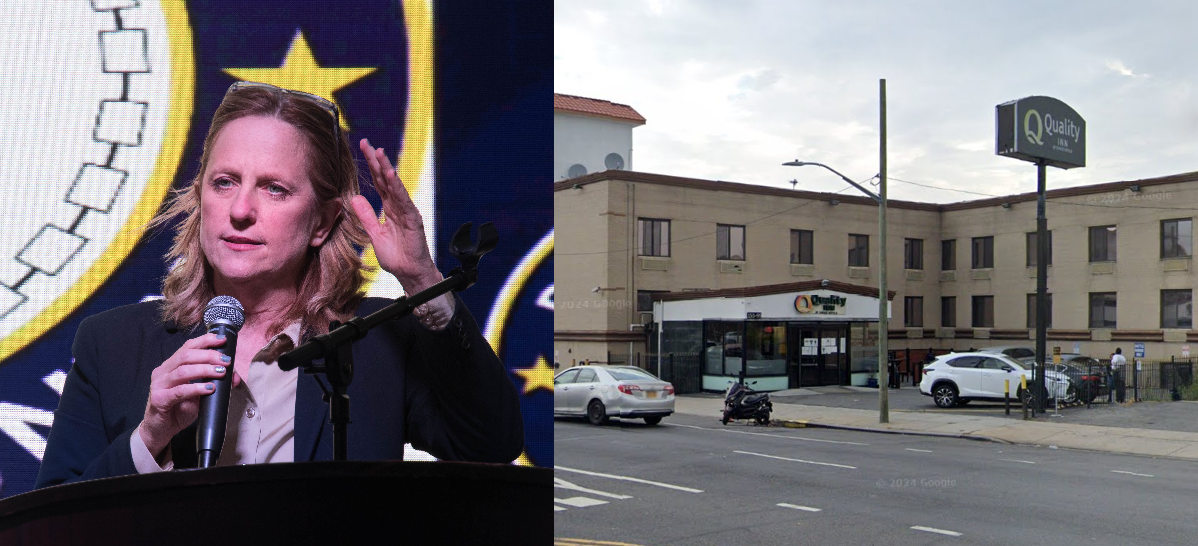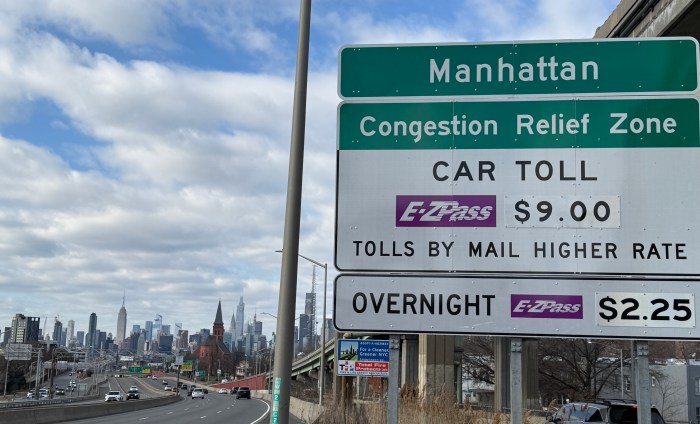Some New York City hospitals are taking increasing measures to protect their patients from the growing measles outbreak by restricting visitation of unvaccinated individuals who live in Rockland County and certain Brooklyn neighborhoods, amNewYork has learned.
The city’s Health and Hospitals Corporation — which runs 11 public hospitals including Bellevue, Kings County and Elmhurst — instituted a policy in April at all of its medical centers that requires individuals from the four Brooklyn ZIP codes identified in the city’s emergency health order (11205 11206, 11211 and 11249) to produce proof they’ve been vaccinated in order to visit any patients, according to a HHC spokesman.
“This protects their loved one, and the other patients in the unit, from potential infection,” the hospital said in a statement.
The HHC spokesman said hospital administrators are extremely cautious about allowing unvaccinated visitors into their critical care units, oncology departments and HIV service areas where their most vulnerable patients reside.
Residents from those neighborhoods will not be barred from any patient services, and any unvaccinated visitor will be offered free or low-cost measles-mumps-rubella (MMR) immunizations, the HHC spokesman said.
As of Wednesday, the city has seen 550 confirmed measles cases in the city, the majority of which are children and residents living in Williamsburg, according to the Health Department. Last month, the mayor issued an emergency health order that mandated residents of the four Brooklyn ZIP codes receive the MMR vaccine or face a fine.
Measles can lead to brain swelling and death, and the MMR vaccine is the only proven way to protect against the virus. The order doesn’t give any directions to hospitals on how to deal with unvaccinated residents from the neighborhoods who go to their facilities, however hospital administrators at several facilities said they’d been in touch with the city’s Health Department regarding best practices.
HHC would not say how many visitors have been turned away since the visitation policy was instituted.
The public hospital system wasn’t alone in taking such measures to protect high-risk patients.
Dr. Jennifer Lighter, the hospital epidemiologist at NYU Langone, said the hospital has been taking steps to screen visitors for measles since February, and updated restrictions this month. Visitors who live in the four ZIP codes, as well as children under 5 years old, are required to show proof of immunity before entering inpatient units. Lighter said the hospital hasn’t encountered too many issues so far.
"If they have been turned away, it hasn’t been for a more than a day or so," she said. "We work with them to get cleared and have vaccines available."
Dr. Bernard Camins, the medical director for infection prevention at Mount Sinai Health System, said that earlier this month two hospitals — Mount Sinai West and Mount Sinai — instituted mandatory screenings for all visitors attempting to enter high-risk wings, including neonatal care and pediatrics. If the person shows mild measles symptoms, such as fever, they are asked to go home and call their primary care doctor; but if they show severe symptoms, they are directed to a health professional at the hospital, Camins said.
Parents of children visitors under 6 years old are required to show proof of vaccination, Camins added.
"If they are not up to date, we do ask the family not to come in," he said.
A spokeswoman for Memorial Sloan Kettering Cancer Center said the hospital mandates proof of vaccinations from visitors from the Brooklyn ZIP codes and other measles-prone counties before they can enter the pediatrics unit. Tracy Gurrisi, a spokeswoman for Montefiore Medical Center, said since April the Bronx hospital has required visitors to show proof of vaccination before being allowed into high risk areas of the hospital. If they cannot provide the papers, they will be asked to wear masks and gloves, Gurrisi said.
A spokesman for Northwell Health system said Cohen’s Children’s Hospital in Queens instituted a policy in the winter that barred children under the age of 14 from visiting the facility to prevent the spread of both the flu and measles. The restriction, however, was lifted last Friday, and none of its other New York City facilities have instituted similar policies so far, according to the spokesman.
A spokesman for SUNY Downstate Hospital said its Brooklyn facility does not ask for vaccination papers, but anyone who comes in with cold-like symptoms associated with measles will be asked to wear a mask.
A spokeswoman for NewYork Presbyterian hospital system said its facilities have protocols for prevention of measles for its visitors, patients and staff, that "are informed by the latest research and updated guidance from public health and regulatory authorities, including the CDC and state and city departments of health,” but couldn’t provide more details.
Calvary, Maimonides and Interfaith hospitals did not return messages for comment.
Dr. Celia Fisher, who is the director of center for ethics education at Fordham University, said there may be critics who question the severity of these policies but she contended such measures are warranted.
"When you think about visiting a patient being deprived of that activity, and when you look at the level of invasion or harm, it is minor compared to the fact that there are health-vulnerable people in that hospital," she said.
Fisher predicted that hospitals and other locations, such as schools, may see more restrictive policies if the outbreak continues to grow.
“The responsibility of public health is to protect the public and not individual rights in a way that does not tread on rights. The health of the public has to be taken first,” she said.


































